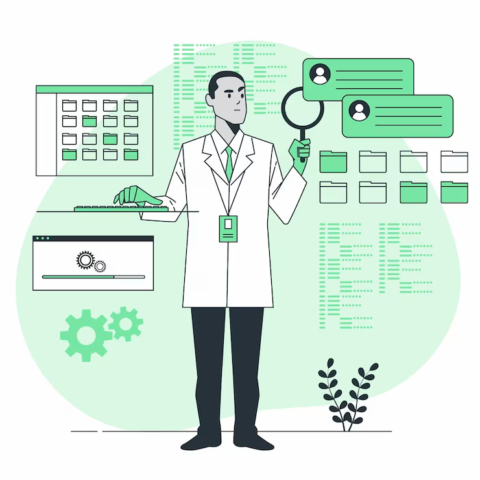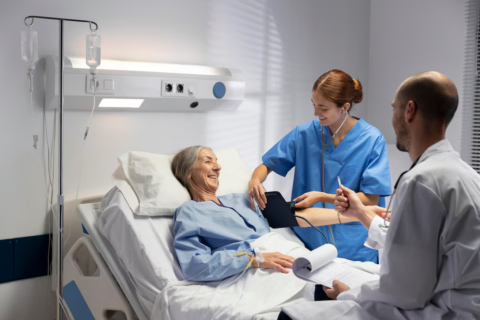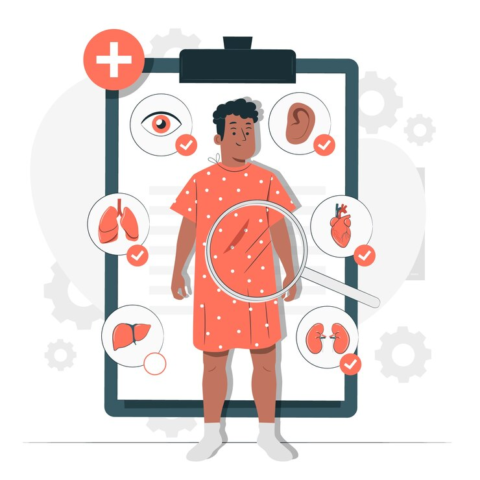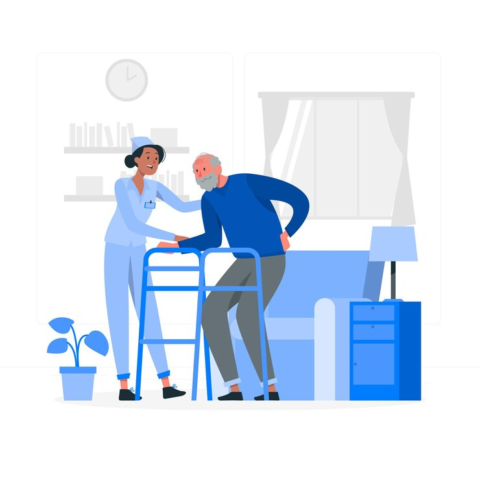
Who are General Duty Assistant?
General Duty Assistant’s (GDA) are medical or healthcare professionals that provide prompt and timely care to patients. Their role revolves around taking care of the patient and their medications, aiding them whenever needed, maintaining proper sanitation, keeping in check the changes in the patient’s health and so forth. The duties of a GDA vary, solely depending on the sickness or problem faced by the patient.
What do General Duty Assistant do?
The main areas where a GDA plays an important role are:
1. Admission of Patients:
Inpatient services are provisions for patients’ continuous care and require them to stay overnight at the hospital. During the time of hospitalization, a GDA is responsible for smooth flow of events such as shifting of the patient from one room to another, tending to the patient’s personal care and needs, ensuring that the equipment is clean, and so on. Most importantly, they ensure the patient’s welfare during their stay in the hospital from the time of admission to the time of discharge.
They are responsible for making the patient’s stay comfortable in the hospital, arranging all observations and treatments, keeping vital signs in check and even care for the body after death.
Sometimes the patient has to be admitted due to an emergency, for example- a stroke, heart attack, appendicitis, shock, etc., and is in dire need of immediate attention. The GDA ensures that the patient is admitted in the hospital without any delay and is given treatment immediately.

2. Medical history and examination of patients:
A GDA is expected to take and be fully aware of the patient’s medical history recorded by their doctor or physician. They are also responsible for arranging all necessary examinations such as X-rays, Computed Tomography (CT) scans, Magnetic Resonance Imaging (MRI) scans, ultrasound examinations, allergy tests, blood tests etc. It is necessary that GDA’s make sure to keep the patient from any extra distress, emotional or physical by aiding them whenever needed. They must be able to provide appropriate and adequate services with respect to the diagnosis and guidelines given by the doctor.

3. Emotional care and reception:
A GDA typically assists the patient with bathing, dressing, eating, bowel and bladder management and even feeding, alongside keeping check on vitals and progress of diagnosed illness or injury. A crucial aspect of patient care is to keep in check the emotional wellbeing of the patient. The GDA must prepare an easy and convenient routine for the patient such that the patient is comfortable with it and can easily get used to it.
The GDA should ensure that the environment around the patient is calm and amicable and does not have any possible trigger that may put the patient in a form of distress. Along with that, a GDA should create a bond with both the patient and their family so that the patient is comfortable whenever any medicine is given, or a medical procedure is performed. Whenever family members or friends wish to pay a visit and catch up or check in with the patient, the GDA should adjust and fix the time according to the patient’s routine so as to prevent any emotional stress.
Other than that, in case of emergency hospitalization or introduction of more help, a GDA must introduce the new faculty to the patient and help them grasp the routine and make the patient and the new faculty both comfortable around each other.
How do General Duty Assistant help?
Diving into details, the following points talk about how exactly General Duty Assistant’s help the patient with their personal needs and create a comfortable environment for them.
1. Grooming:
- Bathing: A GDA helps the patient with bathing, making sure that they are comfortable. Patients are sometimes provided with specific equipment to make it easier for them to bathe. A GDA is supposed to help them rinse and take care of hygiene but is also supposed to put the comfort and protection of the patient above all else.
- Dressing: A GDA ensures that the patient wears comfortable and easy-to-wear clothes. Usually after helping the patient with bathing, dental care, etc., the GDA lays down the clothes in the order in which they are to be worn. This makes it easier for the patient to get dressed.
- Toileting and dental care: The GDA helps the patient with brushing their teeth in case the patient needs any help. Along with that, sometimes the patient goes through a struggle reaching the washroom, perhaps having an accident on the way or if the patient has been diagnosed with a memory affecting disease or disorder, even forgetting the way to the washroom. Thus, a GDA tries to instill in the patient a habit of going to the bathroom timely every day and perhaps even at the same time. In case the patient faces constipation, a GDA keeps a check on the fiber and water intake of the patient. A GDA also ensures that the patient follows proper hygiene, washing hands after using the toilet and wiping properly.

2. Eating habits:
- A GDA ensures the patient is eating properly and on time. In case of vitamin deficiency, they consult the doctor about supplements and other healthy habits that should be encouraged. If the patient faces difficulty in mixing or digesting the food, the GDA should ensure that the food is properly cut into smaller parts and ingredients used are easy to digest. In case of difficulty in chewing and swallowing, food is usually given to the patient in a liquid or semi-liquid form.
- A GDA has to ensure that the patient’s diet is healthy, balanced and according to their needs, metabolism, and does not have any adverse effects on the patient’s health.
- A GDA should ensure that the patient is not overwhelmed in any case while eating. Food and water should be plenty and always present in case of hunger or thirst some other time instead of the scheduled meal time.
- A GDA should make sure the patient is comfortable, mentally and physically before they start eating. Sometimes strong emotions or uncomfortable sitting positions create problems in digestion which often leads to the meal being postponed at least until the strong emotion or discomfort goes away.
- If a patient is unable to finish their food or has an allergic reaction or vomits after eating, a GDA has to inform the patient’s dietician or physician so action can be taken promptly.
- In some cases, due to urinal pressure, patient avoid drinking water, a GDA has to ensure that patients drink enough water. Sometimes a GDA can also consult the patient’s doctor and add vitamins and electrolytes in the water if there is any deficiency, imbalance or specific need.

3. Medication
- A GDA must ensure that the patient takes their medication on time and without missing any dose. Sometimes a patient may mess up the order of taking the medication or even forget to take the medication at all, thus a GDA must label the medicines and remind patients to have the medication.
- In case a patient has difficulty in swallowing the medicine or chewing, the GDA must consult the doctor.
These three subtopics cover the main responsibilities of a General Duty Assistant, but still there are more duties that must be undertaken such as –
- Bed making
- After care of the patient
- Transporting specimens
- Care of body after death
To conclude, a General Duty Assistant plays a major role for Inpatient care. It is a role that is essential, necessary and truly important for not only the care of patients but also the growth of the healthcare industry.

